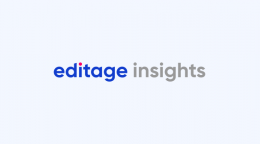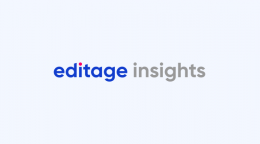Highlights from Peer Review Week 2022 Session 3: Discussing research integrity with the pillars of academia – the researcher, the reviewer, and the editor

Do authors, reviewers, and editors look at peer review differently? What do these stakeholders expect from the peer review process and how do they look at their roles in upholding research integrity? The final event of the Peer Review Week 2022 celebrations (Sep 19-23), powered by Editage and Researcher.Life, was a panel discussion titled “Discussing research integrity with the pillars of academia – the researcher, the reviewer, and the editor.” The panelists were Sun Huh, Professor, Department of Parasitology, College of Medicine at Hallym University, Korea and President of Korean Council of Science editors; Thomas Agbaedeng, Novo Nordisk Research Fellow at the University of Oxford; Karishma Kaushik, Assistant Professor at the Department of Biotechnology at the University of Pune, India; and Sneha Kulkarni, Editor-in-Chief of Editage Insights and Steering Committee Member of Peer Review Week 2022.
The session started with Sneha seeking the editor’s perspective from Sun Huh, an editor at the “Journal of Educational Evaluation for Health Professionals,” a non-profit institutionally published peer reviewed journal. As an editor, Sun Huh believes in having a rigorous editorial screening process in place so that only those papers which have a high potential of being published are sent out for peer review. Sun ensures that when a paper is sent for peer review, the reviewers can focus only on evaluating the scientific robustness of the paper and do not waste their time on dealing with other issues.
Next, Sneha asked Thomas, a prolific reviewer who has reviewed more than 100 research papers, to share the challenges he faces as a reviewer and the ultimate goal he has in mind. Thomas seconded Sun Huh’s opinion when he stated that for him, the reviewer’s role is to look at the most critical points in terms of the methodology of the paper ad provide constructive feedback on this aspect. “My role as a reviewer is to check whether the work is scientifically sound...when I look at the methodology, if I notice something critical, I highlight that because this will indicate whether the paper will be accepted, sent for revisions, or rejected,” he said. Issues with language and formatting leave him feeling frustrated and according to him, reviewers’ lives would be easier if editors invested time to take care of these issues.
When questioned about the kind of feedback an author expects from peer reviewers, Karishma shared very clear expectations: "Peer reviewer comments work best when the feedback shared is constructive, timely, and fair” Having worked in the United States for a long time before moving to India, Karishma acknowledged that manuscripts from the global south often had to face bias in peer review – she therefore recommended double-blind peer review to avoid regional bias and ensure that good science makes its way to the literature.
The conversation then turned to the role of peer review in upholding research integrity and Thomas felt that journals should take onus for this. Since journals get article processing charges for manuscripts, they should incorporate tools or other means to ensure a rigorous check for research integrity. In addition, academic institutions should also have processes in place to ensure that the data is authentic.
Sun Huh agreed that when it comes to research integrity, checking the raw data is crucial. However, he feels that “editors should review the data, instead of the reviewers. It is too time-consuming for them. Reviewers should only check whether the work is scientifically sound. As an editor, I feel like this will save a lot of time.” However, as an editor, he trusts the author’s integrity when it comes to raw data; therefore, he feels that it is also the author’s responsibility to make sure the data is not manipulated.
When asked how the peer review system could be improved, Sun Huh and Thomas emphasized on the need for a rigorous editorial screening so reviewers could focus solely on evaluating the robustness of science, while Karishma pointed at the undue pressure editors and reviewers were facing due to exponentially increasing submission volumes.
The peer review week celebrations ended on ahigh note with the panelists expressing the need for a change in the culture of academia. According to Thomas, the culture of ‘publish or perish’ puts a lot of pressure on authors, and by extension, on reviewers and editors too due to the increased submission volume. Thus, the need for a change in the research culture lay at the core of upholding research integrity in publications. Karishma called for a change in the way authors look at journals: “We have to put an end to this halo effect for journals...The culture surrounding high and low impact journals needs to change. A better approach would be to consider journals that are best suited to a specific manuscript.”
If you have missed the previous sessions, you can catch up on the highlights here:
- Highlights from Peer Review Week 2022 Day 1: Perspectives on research integrity shared by Elizabeth Bik and Mike Streeter
- Highlights from Peer Review Week 2022 Day 2: Experiences and stories from the perspective of the author, reviewer, and journal editor shared by Erin Owens
Are these discussions raising questions in your mind around peer review and research integrity? Share them on our Q&A forum and we will get back to you with answers soon!
Comments
You're looking to give wings to your academic career and publication journey. We like that!
Why don't we give you complete access! Create a free account and get unlimited access to all resources & a vibrant researcher community.

Subscribe to Journal Submission & Peer Review













